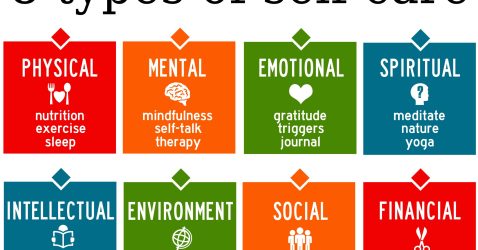Can Volunteering Or Helping Others Alleviate Stress?
Are you feeling overwhelmed by stress and looking for ways to find relief? Well, there might just be a solution right at your fingertips. In this article, we explore whether volunteering and helping others can alleviate stress. Studies have shown that acts of kindness and giving back can have a positive impact on our mental health. So, if you’re curious to find out how lending a helping hand could also bring peace to your mind, read on.
Psychological Benefits of Helping Others
Increased feelings of happiness and well-being
Helping others has been proven to increase feelings of happiness and well-being. When you extend a helping hand to someone in need, it not only benefits them, but it also gives you a sense of purpose and fulfillment. Knowing that you have made a positive impact in someone’s life can bring a great deal of joy and satisfaction. It can be incredibly rewarding to see the smile on someone’s face or hear the gratitude in their voice when you help them. These positive emotions can contribute to a overall sense of well-being and happiness in your own life.
Reduction in stress levels
Another psychological benefit of helping others is the reduction in stress levels. When you focus your attention on helping others, it shifts your focus away from your own worries and problems. This can provide temporary relief from stress and anxiety as you engage in acts of kindness and service. Furthermore, helping others often involves engaging in activities that promote relaxation and mindfulness, such as spending time in nature or practicing meditation. These activities can help to calm the mind and reduce stress levels.
Improvement in mental health
Helping others can also have a positive impact on your mental health. Engaging in acts of kindness and service can boost your mood and alleviate symptoms of depression and anxiety. When you help others, it gives you a sense of purpose and meaning, which can combat feelings of emptiness and lack of fulfillment. Additionally, the social connections and relationships that you develop through helping others can provide a valuable support system, helping to alleviate feelings of loneliness and isolation. Overall, helping others can contribute to improved mental health and well-being.
Boost in self-esteem and self-worth
Helping others can boost your self-esteem and self-worth. When you see the positive impact you have on someone’s life, it reinforces your own value and worth as a person. Contributing in a meaningful way to the well-being of others can give you a sense of pride and accomplishment. It helps you recognize your own abilities and strengths, and gives you a more positive self-perception. As you continue to help others, you may also develop a greater sense of self-confidence and belief in your own capabilities. This boost in self-esteem and self-worth can have a positive ripple effect on all areas of your life.
Physical Benefits of Helping Others
Enhanced immune system
One of the physical benefits of helping others is the enhancement of your immune system. Engaging in acts of kindness and service has been shown to stimulate the production of endorphins, which are natural painkillers and immune system boosters. These endorphins help to strengthen your immune system, making you more resistant to illnesses and infections. By helping others, you are not only benefiting their well-being, but also your own physical health.
Lower blood pressure
Another physical benefit of helping others is the potential for lower blood pressure. Engaging in acts of kindness and service can have a calming effect on the body, reducing stress levels and promoting relaxation. As a result, your blood pressure may decrease, which has numerous health benefits. High blood pressure is a risk factor for many serious health conditions, including heart disease and stroke. By helping others and reducing your blood pressure, you are taking positive steps towards maintaining good cardiovascular health.
Better sleep quality
Helping others can also lead to improved sleep quality. When you engage in acts of kindness and service, it can provide a sense of satisfaction and fulfillment, which can help to alleviate sleep disturbances and insomnia. Additionally, helping others often involves physical activity, which can contribute to a more restful sleep. Regular, high-quality sleep is essential for overall health and well-being, as it allows the body to repair and rejuvenate. By helping others and improving your sleep quality, you are investing in your own physical health and vitality.

Social Benefits of Helping Others
Enhanced social connections and relationships
One of the social benefits of helping others is the enhancement of social connections and relationships. When you engage in acts of kindness and service, you often interact with others who share similar values and interests. This can lead to the development of new friendships and connections, as well as the strengthening of existing relationships. The bonds formed through helping others can provide a valuable support system and a sense of belonging. These social connections and relationships can contribute to overall happiness and well-being.
Increased empathy and compassion
Helping others can also lead to increased empathy and compassion. When you engage in acts of kindness and service, you develop a deeper understanding of the needs and struggles of others. This increased awareness can foster empathy, as you put yourself in someone else’s shoes and try to understand their experiences. Compassion, the ability to feel and show concern for others, is also enhanced through helping others. These qualities of empathy and compassion can have a positive impact on your social interactions and relationships, as well as your overall outlook on life.
Sense of purpose and fulfillment
Engaging in acts of kindness and service can provide a sense of purpose and fulfillment. When you help others, it gives you a meaningful reason to wake up each day and make a positive impact in the world. Having a sense of purpose and fulfillment can increase your overall satisfaction with life and contribute to a greater sense of well-being. It can also provide a source of motivation and drive, helping you overcome challenges and obstacles. By helping others, you are finding meaning in your own life and making a difference in the lives of others.
Volunteering as a Distraction from Stress
Redirecting focus and attention
Volunteering can serve as a distraction from stress by redirecting your focus and attention. When you immerse yourself in helping others, it shifts your mindset away from your own stressors and concerns. Instead of dwelling on your own problems, you are able to concentrate on the needs of others. This shift in focus can provide temporary relief from stress and help you gain a fresh perspective on your own challenges. By redirecting your focus and attention, volunteering allows you to take a break from your own stress and worries.
Providing a sense of purpose and meaning
Volunteering also provides a sense of purpose and meaning, which can help to alleviate stress. When you engage in acts of kindness and service, it gives you a meaningful reason to channel your energy and efforts. You have a clear purpose and goal, which can provide a sense of direction and focus. This sense of purpose and meaning can be incredibly empowering and help you overcome feelings of helplessness or overwhelm. By volunteering and finding purpose in helping others, you are able to combat stress and find fulfillment in your own life.

Creating a Positive Environment
Spreading kindness and positivity
One of the ways that volunteering can create a positive environment is by spreading kindness and positivity. When you engage in acts of kindness and service, you are contributing to a more positive and uplifting atmosphere. Your actions and words have the power to brighten someone’s day and inspire others to do the same. By spreading kindness and positivity, you can create a ripple effect of positive energy and foster a more supportive and caring community. This positive environment can have numerous benefits for both individuals and society as a whole.
Promoting gratitude and appreciation
Volunteering promotes gratitude and appreciation, which contributes to a positive environment. When you engage in acts of kindness and service, you become more aware of the blessings and privileges in your own life. It helps you recognize the things that you often take for granted and cultivates a sense of gratitude. Expressing gratitude and appreciation not only benefits the recipients of your help, but also enhances your own well-being. By promoting gratitude and appreciation, volunteering creates a positive environment where individuals are more mindful of the good in their lives.
Combating the Negative Effects of Stress
Reducing the impact of stress on physical and mental health
Volunteering can be an effective way to combat the negative effects of stress on both your physical and mental health. When you engage in acts of kindness and service, it helps to reduce the impact of stress on your body and mind. The positive emotions and sense of fulfillment that come from helping others can counteract the negative effects of stress hormones in your body. It also provides a healthy outlet for releasing stress and tension, helping to prevent the accumulation of stress-related symptoms. By combating the negative effects of stress, volunteering contributes to your overall well-being and quality of life.
Improving overall well-being and quality of life
Engaging in acts of kindness and service through volunteering can improve your overall well-being and quality of life. By reducing stress levels and promoting positive emotions, volunteering enhances your mental health and emotional well-being. Additionally, the physical benefits of helping others, such as a strengthened immune system and lower blood pressure, contribute to your overall physical well-being. The social connections and relationships that you develop through volunteering also provide a valuable support system, enhancing your sense of belonging and overall satisfaction with life. By improving your well-being and quality of life, volunteering allows you to lead a more fulfilling and meaningful existence.

Volunteering as a Source of Personal Growth
Developing new skills and knowledge
Volunteering can serve as a source of personal growth by helping you develop new skills and knowledge. When you engage in acts of kindness and service, you often encounter new challenges and opportunities for learning. Whether it’s learning how to communicate effectively with diverse individuals or acquiring specific technical skills, volunteering expands your skillset. This personal growth not only benefits your ability to help others, but also enhances your own personal and professional development.
Building confidence and self-efficacy
Volunteering also contributes to building confidence and self-efficacy. When you engage in acts of kindness and service, you are able to see the positive impact that you have on others. This recognition of your abilities and the value of your contributions can boost your self-confidence. It helps you recognize your own strengths and capabilities, leading to a greater belief in your own abilities. As you continue to volunteer and make a difference in the lives of others, your confidence and self-efficacy grow, empowering you to take on new challenges and overcome obstacles.
Altruism and Empathy
Understanding the needs of others
Engaging in acts of kindness and service through volunteering helps to cultivate a deeper understanding of the needs of others. When you volunteer, you are exposed to various individuals and communities who may be facing different challenges and struggles. This exposure expands your perspective and allows you to gain insights into the lives of others. This understanding of the needs of others fosters empathy and compassion, as you develop a greater sense of empathy for their experiences and struggles.
Promoting empathy and compassion
Volunteering also promotes empathy and compassion. When you involve yourself in acts of kindness and service, you are able to connect with others on a deeper level. This connection helps to foster empathy, as you share in their joys and sorrows. Compassion, the ability to feel and show concern for others, is also promoted through helping others. By promoting empathy and compassion, volunteering not only benefits the individuals you assist, but also enhances your own ability to connect with and understand others.
Volunteering as a Form of Self-Care
Self-care through helping others
Volunteering can serve as a form of self-care by providing an opportunity to care for others. When you engage in acts of kindness and service, it allows you to shift your focus away from your own problems and concerns. By directing your efforts towards helping others, you are able to gain a sense of fulfillment and purpose. This act of giving can bring you joy and satisfaction, contributing to your own well-being. Volunteering as a form of self-care reminds you of the importance of caring for others and helps you nurture your own soul.
Taking a break from personal stressors
Volunteering also allows you to take a break from your own personal stressors. When you immerse yourself in helping others, it provides a temporary escape from your own worries and challenges. By focusing on the needs of others, you are able to gain a fresh perspective on your own problems. This break from personal stressors can be refreshing and rejuvenating, allowing you to return to your own life with a renewed sense of energy and purpose. Volunteering as a form of self-care helps you recharge and replenish your own emotional reserves.
Conclusion
In conclusion, volunteering and helping others can have profound psychological, physical, and social benefits. By engaging in acts of kindness and service, you can experience increased feelings of happiness and well-being, reduction in stress levels, improvement in mental health, and a boost in self-esteem and self-worth. Volunteering can also enhance your physical health by enhancing your immune system, reducing blood pressure, and improving sleep quality. In terms of social benefits, volunteering can enhance social connections and relationships, increase empathy and compassion, and provide a sense of purpose and fulfillment. Additionally, volunteering serves as a distraction from stress, creates a positive environment, combats the negative effects of stress, promotes personal growth, fosters altruism and empathy, and can be a form of self-care. Ultimately, by volunteering and helping others, you not only make a positive impact on the world, but also reap numerous benefits for your own well-being and quality of life. So, go out there and make a difference in someone’s life – it will be just as rewarding for you as it is for them!

















